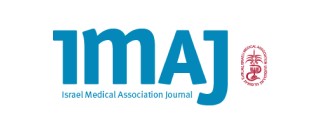Multi-institutional validation survey on Belong AI oncology mentor

Accuracy of recommendations by a conversational AI cancer mentor app

The Prevalence of Cannabis-related Arrhythmias in Patients with Cancer: Real-world Data Evidence of Patient-reported Outcomes

A Laish-Farkash, L Vasilenko, Noy Moisa, Daniel Vorobiof. Israel Medical Association Journal, vol 25:4:292-297, 2023. Abstract Background: Cannabis consumption is suspected of causing arrhythmias and potentially sudden death. Objectives: To investigate prevalence and temporal relationships between cannabis use and onset of symptomatic arrhythmias among cancer patients using Belong.life, a digital patient powered network application. Methods: […]
Real-world behavioral practices of cancer patients: misconceptions compromising daily life activities

ESMO Real World Data and Digital Oncology Journal | VOLUME 4, 100041, JUNE 2024. Published: May 13, 2024DOI. Authors: E. Shachar, S. Peleg-Hasson, D. Vorobiof, E. Waller, T. Safra, I. Wolf Highlights Background Health-related quality of life is commonly used as an endpoint in clinical trials. While it evaluates the presence of symptoms, it does not measure […]
Real-world behavioral restrictional practices of cancer patients (pts)

Researched by Belong.life and Sourasky Medical Center, Oncology Division. published by ASCO Authors: Eliya Shachar, Noy Moisa, Shira Peleg-Hasson, Tamar Safra, Ido Wolf, Daniel A. Vorobiof Background: Quality of life (QoL) assessments do not measure pts’ ability to maintain normal daily activities during cancer therapy. Misbeliefs might promote avoidance of activities perceived as dangerous, compromising pts […]
Real world data evidence on cancer patients awareness and knowledge of cancer associated thrombosis (CAT) events

Researched by Belong.life and Hematology Institute, University Hospital Assuta Samson Ashdod. published by ASCO Authors: Adrian Marcelo Duek, Bozhena Haikin, Alon Litvin, Daniel A. Vorobiof Background: Cancer pts are mostly unaware of the higher than normal risk of developing a CAT event. A recently reported European survey, with 745 participants, showed that just above two-thirds (69%) […]
Lessons Learned from the Implementation of a Person-Centred Digital Health Platform in Cancer Care

Published: 29 September 2022 Abstract The SARS-CoV-2 (COVID-19) pandemic has accelerated the development and use of digital health platforms to support individuals with health-related challenges. This is even more frequent in the field of cancer care as the global burden of the disease continues to increase every year. However, optimal implementation of these platforms into […]
Covid 19 infection leading to a subsequent new primary cancer diagnosis, Real-world data (RWD) analysis on members of Belong.life, a global cancer application

Researched by Belong.Life and published by ASCO Authors: Daniel A. Vorobiof, Bozhena Haikin, Alon Litvin, Irad Deutsch, Eliran Malki. Background: Some known viral infections can lead to a diagnosis of cancer (e.g: HPV, HIV, EBV, etc.) Anecdotical reports of a Covid 19 infection, and the subsequent diagnosis of a new cancer have been mentioned by […]
FATIGUE PREVALENCE AND Treatment Adherence: A Real-World Data Suvey & Mathematical Model Application

Researched by Belong.Life and published by ESMO, 2018 Authors D.A. Vorobiof, E. Malki, I. Deutsch, M. Bivas-Benita Background & Methods: Fatigue is a common symptom reported by cancer patients (pts) and has been previously documented to affect patient’s quality of life. A real-world data survey was designed to evaluate, from the pts perspective, the fatigue […]
Identifying The Patient Journey And Treatment Lines Patterns In Metastatic Pancreatic Cancer

Researched by Belong.Life and published by ASCO, 2018 Authors: Daniel Vorobiof, Irad Deutsch, Eliran Malki, Maytal Bivas-Benita Introduction: Checkpoint inhibitors such as programmed cell death receptor 1 (PD-1) antibodies have significantly improved the prognosis in several malignancies. While treatment with the PD-1 targeting antibodies, pembrolizumab and nivolumab, has substantial clinical benefit, it is associated with […]








